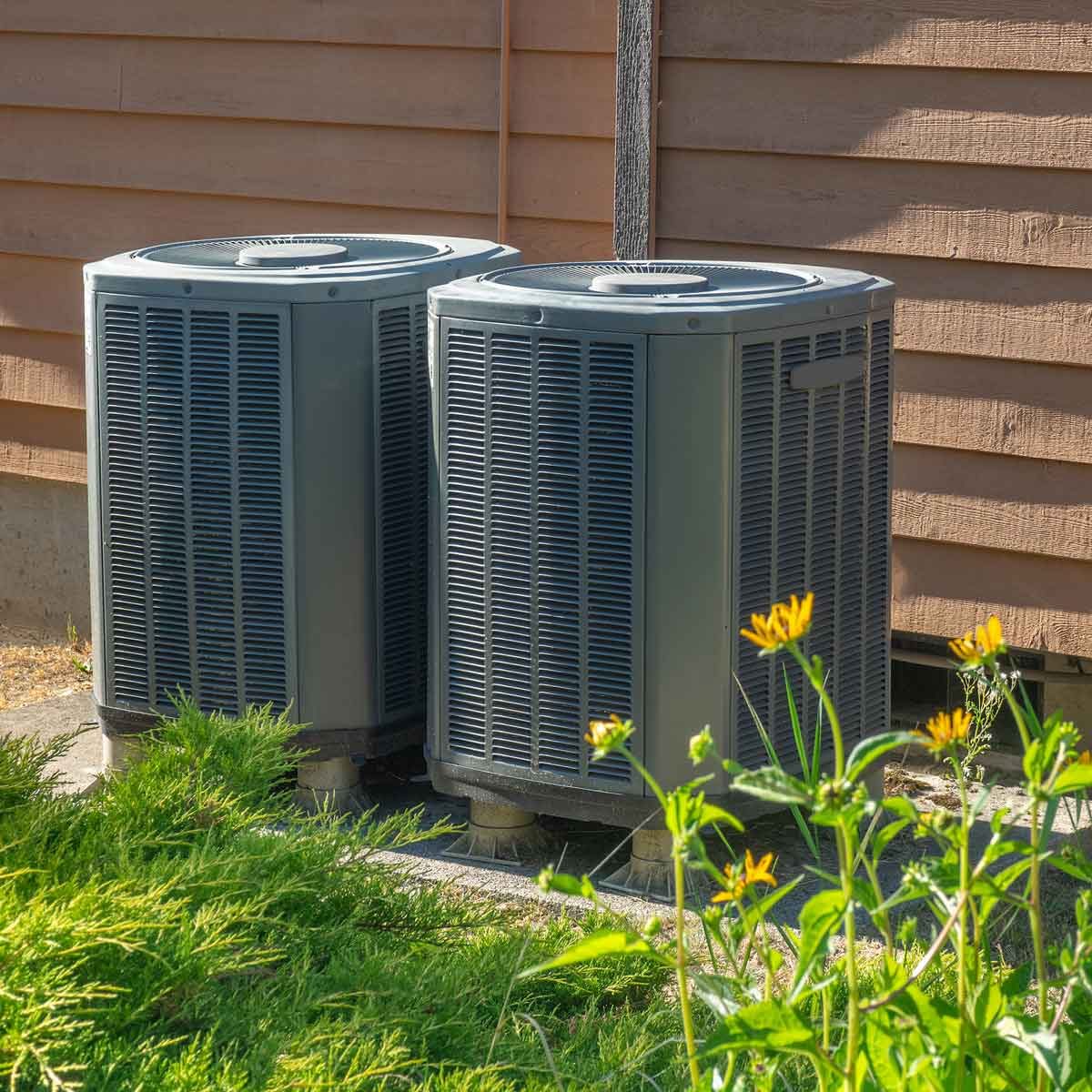A/c Noise Problems: Recognizing and Repairing the Resource
Did you understand that around 75% of property owners experience a/c noise issues at some time? When your a/c begins making unusual sounds, it can be quite turbulent to your peace and comfort.

From rattling and humming to screeching and banging, these noises can suggest underlying issues that need focus. Determining the resource of the sound is necessary for efficient repairs and guaranteeing your ac system runs successfully.
So, if you're tired of putting up with frustrating AC noises disrupting your harmony, there are solutions at hand.
Secret Takeaways
- Normal maintenance is essential to address usual AC noise sources like ductwork problems and malfunctioning motors.
- Address vibrating noises by checking for loose components, maintaining fan motors, and including vibration isolation pads.
- Squealing and banging noises can be fixed by checking belts, fan blades, and compressor coils for problems.
- Repair service AC sound issues by performing visual examinations, executing soundproofing methods, and repairing for obstructions.
Common Cooling Noise Sources
If your air conditioning system is making uncommon sounds, maybe due to one of several common sources.
One constant culprit is issues with the ductwork. With time, air ducts can establish leakages, loosened connections, or even obstructions. These troubles can trigger air to stream unevenly, leading to whistling or rattling audios. A thorough ductwork assessment by a professional can aid identify and remedy these issues, restoring your system's smooth procedure.
An additional usual resource of noise in cooling systems is a malfunctioning motor. The electric motor is a vital element that drives the followers and various other moving parts within the system. If the electric motor is worn or harmed, it can generate grinding, squealing, or clunking noises. In such situations, motor replacement may be needed to eliminate the resource of the disturbance. Normal maintenance and punctual electric motor replacement when needed can assist keep your a/c system running quietly and effectively.
Identifying Rattling and Humming Seems
To address rattling and buzzing sounds in your air conditioning system, start by inspecting the parts that might be triggering these noises, such as loosened parts or worn-out parts. Resonance isolation is key in resolving these concerns. Check for any kind of loosened screws, bolts, or panels that might be shaking against each various other during operation. Tightening up these can often alleviate the rattling sounds.
Furthermore, inspect the follower motor for any kind of indications of damage. Normal follower electric motor upkeep, such as lubrication and cleaning, can help in reducing humming noises caused by friction or malfunction.
If the rattling persists after inspecting and tightening parts, think about adding vibration seclusion pads or installs to soak up the excess resonances. These pads work as a buffer between the shaking components, lowering the noise. Keep in mind that addressing these audios quickly can avoid further damages to your a/c system and guarantee its peak performance.
Addressing Screeching and Banging Sounds
When resolving squealing and banging noises in your air conditioning system, begin by recognizing the source of the noises via a comprehensive evaluation of the system's parts. Check the belt stress as well as the motor bearings, as loosened belts or worn-out bearings can result in squealing noises. Check the follower blade for any type of obstructions or problems that might trigger banging noises when the fan turns. Furthermore, check out the compressor coil for any particles or problems that could be producing the noises.
To deal with screeching sounds associated with belt tension, readjust the stress adhering to the supplier's standards to make sure it's within the advised array. If the motor bearings are the perpetrator, take into consideration oiling them if possible; otherwise, they may require to be replaced. Air conditioning filter replacement For banging sounds brought on by follower blade issues, fixing or change the damaged blades without delay. When it comes to the compressor coil, cleaning it extensively can commonly solve any noise-related issues. By resolving these possible sources of squealing and banging sounds, you can recover your a/c system to its ideal operating state.
Tips for Repairing Cooling Noise
When faced with air conditioning sound concerns, beginning by performing a visual examination of the unit's components for any noticeable signs of damages or wear. Search for loose parts, worn-out belts, or debris that may be triggering the sound. If you observe any type of problems, ensure to tighten loosened elements, change harmed parts, and clear out any debris to see if the noise improves.
To attend to air conditioning noise problems, consider soundproofing methods to lower the sound transmission from the device. Insulating the wall surfaces around the unit, installing soundproofing panels, or positioning rubber pads beneath the system can assist moisten the sound successfully.
Normal upkeep is crucial to avoid air conditioning noise. Be certain that the system is clean, lubricated, and properly maintained to minimize prospective problems. Troubleshooting actions like inspecting the follower blades and electric motor for any kind of obstructions can likewise assist detect and repair sound problems. For minor problems, DIY solutions such as tightening up screws or adjusting components may deal with the sound without the need for professional assistance.
Guaranteeing Efficient Air Conditioner Procedure
Ensure your air conditioner operates successfully by scheduling normal maintenance checks and keeping the device tidy and well-lubricated. Guaranteeing your cooling system works at its ideal not just lowers sound yet likewise lowers energy consumption. To accomplish this, execute sound reduction methods such as placing resonance pads under the unit to moisten sound transmission and ensuring all parts are safely tightened up. In addition, tidy or replace air filters consistently to prevent air movement clogs that can strain the system and boost noise degrees. https://holbornhvac.co.uk/air-conditioning-installation.html
Power intake optimization is important for reliable a/c operation. Establish your thermostat to a suitable temperature to avoid exhausting the unit. Use ceiling fans to help flow awesome air more effectively, enabling you to elevate the thermostat somewhat without giving up convenience. Think about installing a programmable thermostat to readjust temperatures immediately when you're away. By complying with these techniques, you can preserve a comfy indoor setting while lessening energy costs and noise levels.
Often Asked Questions
Can Air Conditioning Sound Levels Impact the High Quality of Indoor Air?
High air conditioning sound degrees can influence indoor air top quality by contributing to noise pollution, which can influence your health.
To address this, consider soundproofing services to minimize the noise from your air conditioning system.
Is There a Relationship In Between Air Conditioning Sound and Energy Efficiency?
When it concerns air conditioning noise and power effectiveness, there's certainly a connection.
The loud sounds created by your AC system can show inadequacies that cause enhanced energy consumption.

By attending to and decreasing the noise pollution, you can boost the general efficiency of your system.
How Can I Minimize Air Conditioning Sound Without Compromising the Cooling Efficiency?
To lower a/c sound without endangering cooling performance, think about soundproofing services like acoustic insulation.
You can enhance efficiency by adjusting the system for efficiency while dampening unwanted audios.
Attempt ensuring all parts are effectively installed and kept, and look for loose components that might be creating excessive sound.
Are There Any Kind Of Certain Rules or Guidelines Relating To Acceptable Sound Degrees for Air Conditioning Units?

When it concerns cooling units, there specify laws and standards in place to ensure conformity with acceptable sound degrees. These standards help endure a comfortable setting without creating disturbances.
Regulations concerning sound levels for a/c units differ depending upon location, however usually focus on minimizing audio discharges to a degree that doesn't interfere with daily activities. It's important to be aware of these guidelines to make sure your unit fulfills the necessary requirements.
What Are Some Long-Term Upkeep Tips to Prevent Air Conditioning Sound Issues in the Future?
To stop air conditioning noise concerns lasting, make sure you adhere to regular upkeep. Clean or replace filters, check for loose parts, and keep the unit tidy.
Think about soundproofing strategies like adding insulation around the unit. By staying on top of upkeep and taking actions to minimize noise, you can enjoy a quieter and extra effective air conditioning system in the future.
Verdict
Since you have actually identified the common resources of air conditioning noise and discovered just how to identify and repair them, you can enjoy a quieter and much more efficient cooling system.
Remember to regularly check for any unusual audios and resolve them without delay to stop any further damage.
By taking care of your a/c device, you can assure it runs smoothly and properly for years to come.
